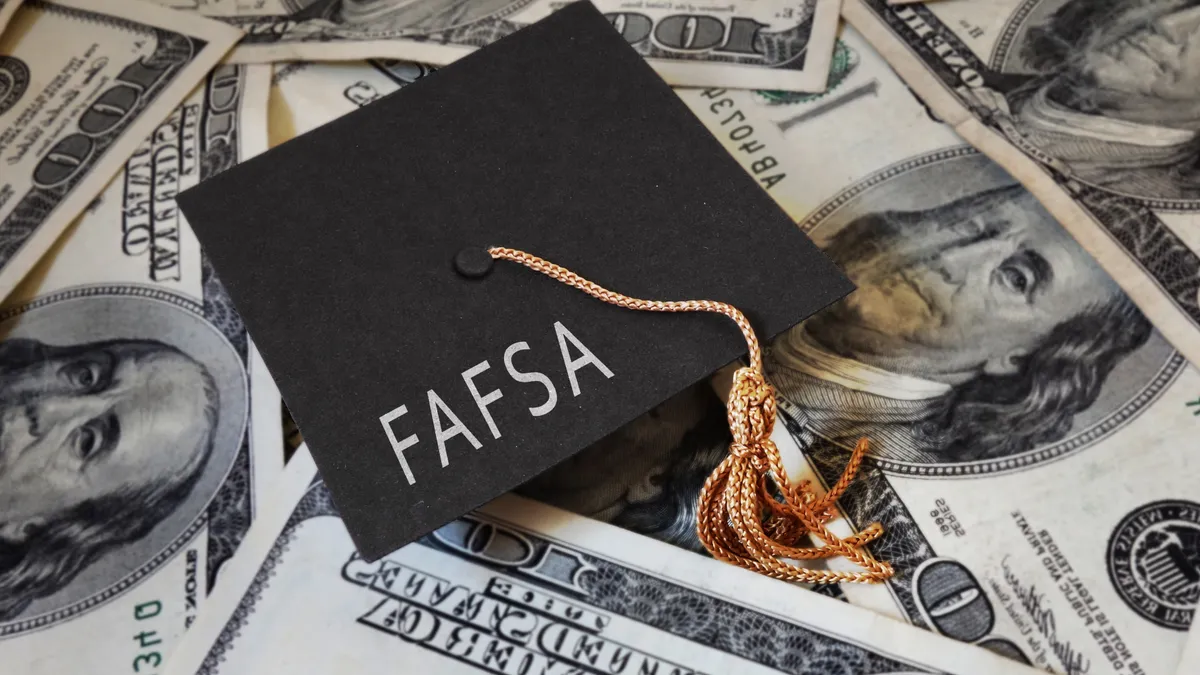In its continued effort to remedy the series of snafus marring the rollout of an updated Free Application for Federal Student Aid form, the U.S. Department of Education announced Monday more technical and outreach support to help high schools, states, and private and nonprofit organizations boost FAFSA completion rates for high school seniors.
At the center of the announcement is a $50 million investment to organizations already working with schools and districts to expand college college access and enrollment. ECMC, a student loan management nonprofit company, will lead the FAFSA outreach effort. Colleges use FAFSA applicant information to determine students' financial aid packages.
The funds will go toward building the organizations' capacity to make more advisers, counselors and coaches available to support students and partners through the FAFSA application process. That could include holding FAFSA application appointments and events for extended hours during evenings, weekends and summer.
Money will also be dedicated for FAFSA submission clinics at the local level, including transportation as needed. Resources will be used to help organizations communicate with parents and students via text, phone calls and video conferences in multiple languages.
"Our goal is to connect with local, state and regional partners nationwide to work together to share about the importance of encouraging all high school seniors going to college to submit their FAFSA form so that they have the greatest financial support possible as they pursue higher education," said Cindy Marten, deputy U.S. secretary of education, during a press call Monday.
FAFSA completion remains down
Marten also emphasized the department is determined to close the FAFSA completion gap. The federal deadline to complete the 2024-25 FAFSA is June 30, 2025, although states set their own deadlines with some scholarship applications open until funds are depleted.
The percentage of high school seniors completing the FAFSA for college enrollment in the 2024-25 school year was down 24.3% compared with the class of 2023, as of April 26, according to the National College Attainment Network's FAFSA Tracker. Whereas 48.2% of high school students had completed the FAFSA by that date last year, just 35.6% of this year's seniors have done so, the tracker shows.
For high school seniors of color attending high-minority schools, completions are down 29.5% year over year, according to the NCAN tracker.
The overall high school senior completion rate has budged only a few percentage points from the 27.1% year-over-year decline reported by the tracker through late March.
Parents, students, high school administrators, college aid offices and lawmakers have expressed loud frustration with the late launch and technical glitches that plagued the updated FAFSA form.
Pizza parties and prom tickets
At Monday's press conference, U.S. Under Secretary of Education James Kvaal said nearly 9 million FAFSAs have been submitted for the 2024-25 school year. Students who complete the form can expect those records to be sent to colleges within one to three days, Kvaal said. He added that colleges are receiving reliable records and sending out aid offers, according to survey data that he's seen.
"We're continuing to make improvements to make this process as smooth as possible for all students," Kvaal said. For example, the Education Department last week streamlined the FAFSA process for applicants and contributors who lack Social Security numbers, he said.
Angélica Infante-Green, Rhode Island commissioner of elementary and secondary education, told reporters that the state has made FAFSA completion a priority. Rhode Island had a 50.3% high school senior FAFSA completion rate as of April 26, down 17.8% from the previous year, according to the Education Department.
The state has FAFSA ambassadors who help with outreach and work with school districts and colleges on proactive measures, Infante-Green said. The state also surveyed school counselors about effective practices, which include holding multiple FAFSA completion events at nights and on weekends, Fill-It-Out Friday campaigns, and offering completion incentives like pizza parties, pep rallies and reduced-price prom tickets, Infante-Green said.















